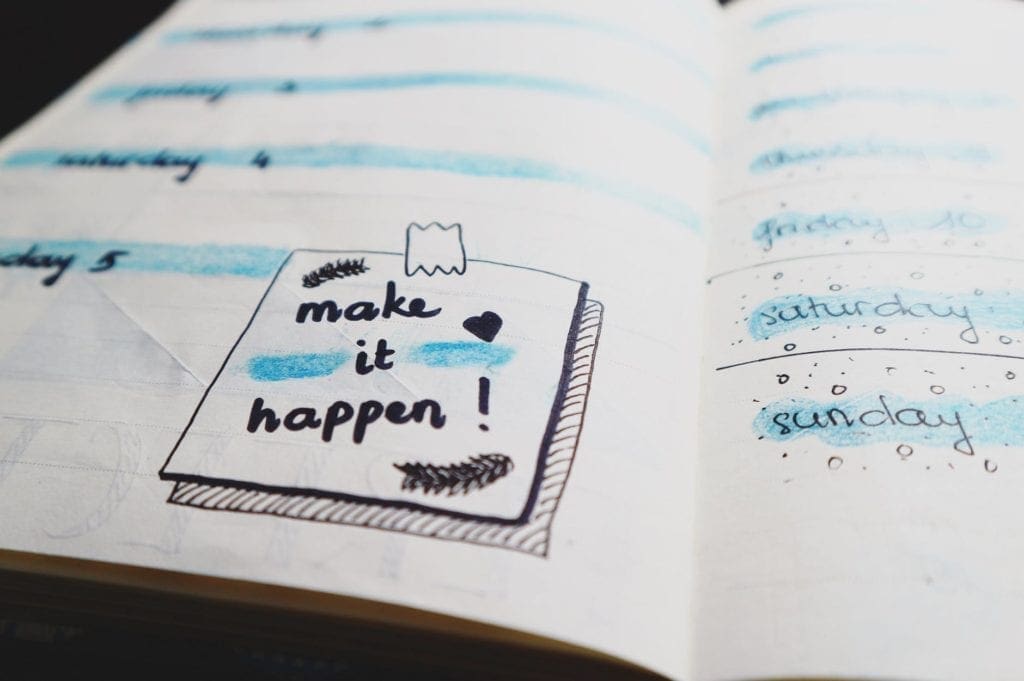Everybody needs their other half: Ancient Greek mythology thought that mankind had initially been created as conjoined together, but had been punished by Zeus to be split in half and spend the rest of their life searching for the other – hence the very literal term “other half” when referring to your partner or spouse. In modern times, many people still believe in the ideas of love at first sight, soul-mates and twin flames; the concepts that you can fall completely and utterly in love with another human being from the first moment you see them and remain interlinked with your partner forever on the deepest level.
And every day you see each other, you’re as in love as the first day you laid eyes on one another. That’s the perfect ideal that’s launched a thousand ships, and inspired countless books and movies: What’s your favorite romantic tale? Some prefer to look to Shakespeare, other people prefer a more modern take on love and have seen all of the romantic comedies and read all the romances that have been released in the past fifty-or-so years.
Just think about it: Almost every movie, TV and book plot has some romance mixed into it, even when the main genre of the movie isn’t romance: Hell, even A Nightmare on Elm Street had some romance in the plot – although the girl was dragged around the ceiling by Freddy Krueger shortly after. (And you might not have known that this was Johnny Depp’s first movie role – and many people have fallen head over heels in love with Depp; unfortunately the same might not be true for Krueger…)

But once you get away from the movie ideals of perfect romance, you realize that real life relationships are hard: Things don’t always have a beginning, middle and end like they do in the movies, and things aren’t as easy as they appear on the silver screen. People rarely serenade others with romantic songs outside their window at three in the morning, it’s not really romantic when someone shows up at your door in the rain in the middle of the night to proclaim their love for you – and some romantic comedy behavior that appears romantic when you’re seeing it happen to someone else, when you think about them in real-life terms, would turn out to be creepy and might have you classed as a stalker.
Real life relationships aren’t like the movies at all: Real relationships are hard, and it takes real work to make it succeed. No Hollywood screenwriter is sitting behind a keyboard making sure that everything will work out alright by the half-hour and twenty minute mark so people can get their money’s worth and a happy ending. Making a relationship work is all up to you.
It’s not easy to keep a relationship going, but think of old, married couples who have been together for the past forty, fifty years or even more – how on earth did they do it? And what are the secrets to a long-lasting, happy, healthy relationship with your own partner so you, too, can look forward to a happy relationship with the rest of your lives?
Here’s how you can keep your relationship going for the long-haul:
There is no single secret
The first thing you have to realize when you’re working on a successful, long-term happy relationship with your partner or courting someone for the future: There is no single secret to a happy relationship. This might come as a shock to you, especially if the perfect Hollywood-plot romance is something you’ve been craving for decades, but we’ll say it one more time: There is no single secret to making things work. Different people are, well, different – and each happy couple will say that something else is responsible for the longevity of their relationship over the years.
Some couples swear by taking a break from each-other once in a while to enjoy other pastimes – and it’s been the pun of possibly thousands of “going fishing” jokes. Other couples will say that spending all of their time together over several decades and not being apart for a single day was the secret to their relationship lasting as long as it does. Some couples might have had a hard time getting to their story of a happy ending and might have gotten divorced and re-married, as is the case with many; others might have needed couples’ therapy to reach a level where they could be truly happy.
Different things work for different people. Accept that there is no single secret, there is no magical formula and there is no Hollywood plot. Relationships take work, compromise, thought, love, and a little bit of insanity thrown into the mix. You can’t expect to make things happen out of nowhere; bread doesn’t bake itself, floors don’t sweep themselves, and relationships don’t just make themselves work with zero effort.
Let your “perfection list” go
Everybody has an idea in their head, at least more or less, of what they would want their partner to be like someday. Usually people cultivate this idea early on in life – sometimes while they’re teenagers, sometimes older, sometimes even younger. This can be surprisingly specific and often goes way beyond personal preference or having a “type.” We’ll call this your “perfection list” – the list of everything you think you want your partner to be.
Some people swear that they will only date blondes. Other people have a thing for brunettes. Some people will disqualify their potential partners based on things like their eye color, the music they listen to (or don’t), what they wear, whether or not they wear make-up – some reasons are more off-the-wall, like choosing to avoid somebody completely because you insist that they chew too loudly and you’re sure you won’t be able to deal with that for the next fifty years.
But once you let your “perfection list” go, you might realize that what you’ve been looking for has been there all along. Discard your perfection list and instead think about who you would want your potential partner to be and what you would want them to be like, rather than cropping them into columns of “do’s” and “don’ts”, “wants” and “want nots” – categorizing partners in this way only makes it harder to find yourself a suitable partner, and you might be missing someone special who has been staring you right in the face for a very long time, only waiting for you to make the first move.
Relationships online
Relationships are drastically changing from the way they were forty, thirty or even ten years ago: More people are heading to the internet to meet their potential partners, and that’s not the only impact the internet has had on relationships all over the world. Couples can now keep in touch from any part of the world, and this has made long-distance relationships and times away from home for couples a lot easier to deal with – this means that, no matter where you are in the world, you can contact your partner back home with just the click of a button.


This has changed the dynamic of relationships. Fifty years ago, it would have been terribly hard to keep in touch with your partner if they had to travel for work; this is something that had a lot of potential to cause damage to relationships – and there’s no doubt that it inspired many to move on if they didn’t hear from a partner for months at a time, even during wartime. How many love letters sent by snail mail could have gotten lost over the years and caused relationships to shatter just because of a letter that didn’t end up where it was meant to
Modern convenience and the internet has eliminated most of this impact: When communication is instant, you have no excuse not to get in touch with your partner, no matter where you might find yourself. Today, you can even go online and with a few clicks have a gorgeous bunch of deep red roses or a box of decadent Belgian chocolates delivered right to your partner’s front door; this is also something that the internet has made possible.
The internet has made it possible to strengthen existing relationships. (Some, especially couples who have experienced cheating via social media, might argue with this – but remember that the internet remains a simple tool, and how it’s used depends on each individual couple. If used right, it could keep the ties of your relationship woven together tightly; if not, your relationship could unravel, but it is likely that it would have done so even without the advent of the internet: Cheaters cheat, whether they have internet access to do so or not.)
Building a relationship first
Building a successful relationship takes time, and it often happens in stages: First, two people meet. They can be introduced to each other through a mutual friend, meet in a club or bar, meet on the internet, bump into each-other at complete random, exchange numbers while buying coffee at Starbucks; shortly, there are a thousand ways people can meet and suddenly realize that they have a romantic connection together that could last a long time. (Think about that the next time you think that it’s hard to meet new people!)
Secondly, the two people fall in love – sometimes this happens immediately and other times it takes a little bit of time. There are many old couples who say that they hated each-other when they first met and the love part only fell in much later! This, too, can happen in a thousand different ways and is going to be different for every person. You can read a million love stories and no two will turn out to be exactly alike.
What we can say is true of all relationships is that it had to be built over time – it’s just the amount of time that varies from couple to couple. The courting period can last a couple of weeks before a couple suddenly gets hitched, or there are people who have known each other for years and then suddenly decide to get married when they are deep into their eighties and feel like they’re finally ready to take the big step. Again, there is no single secret for a happy relationship, and there is no one courting ritual that works. (If you ever find yourself in a night-club, the same will be true for pick-up lines – and, for the most part, they don’t work, and the best thing you can hope for is that the person on the other end has a good sense of humor…)
Traditional guides to relationships, life and sex
There have been a million books on how to make your relationship succeed, and there have been plenty of traditional guides on how to make a relationship or marriage last: Did you know that the Kama Sutra isn’t just a guide on sex, but one on relationships, marriage and home life, too? Most traditions and religions have their own traditions associated with marriage and relationships – and most cultures have different secrets and honeymoon traditions.


Traditional guides to relationships could still deserve a place on your book-shelf, but it’s also worth saying that much of the advice given is outdated – or might no longer apply to modern relationships as they did in the old days. (We can look at this in terms of ancient times, too, but we can also think back to the forties and fifties where relationship advice was often very outdated by today’s standards, and the secrets to a happy marriage might seem a little bit sexist by today’s modern standards.)
Relationships are changing
Relationships, how they develop and what makes them last are drastically changing. The internet has taken love into cyberspace, and it’s long-since become common knowledge in most households in most parts of the world that a woman’s place is definitely not just in the kitchen! Relationships are different now than they used to be. So you can toss everything that you think you know about relationships out the door and accept that relationships are changing in today’s world.
Eliminating past baggage
When a couple first get together, the first thing one has to realize is that it’s two people getting together to form one life together. These are two people who have had entirely separate lives up until that point: This means that they have developed their own lifestyle and habits – and they need to remember at all times that this might not match up, and this is what causes most of the conflict behind the fights that occur in new relationships.
Couples should also remember to eliminate the baggage they have carried through them from past relationships – this involves any partners you think you might still have feelings for, or a partner you don’t feel a thing for who might still be hanging on in the background. Baggage can also include fears and insecurities that you carry through from a previous relationship, and it’s something that could prove to be very damaging to your current one.
The best advice when it comes to your baggage is to let go of all of it as much as you can. See it as a new beginning, a fresh start, something between you and someone new – and it doesn’t need anyone or anything else from the past to factor into it. Almost nothing before you met should matter, and this kind of baggage should be let go of and laid open on the table very early on in a relationship at best – that’s how you prevent any uncomfortable secrets from popping out like an angry snake from a bag in ten years.
Let go of your baggage, and respect your partner enough to view them in the same light. A new start, a new relationship, and nothing else should matter.
New relationship problems


Especially new relationships can undergo a few hard times in the beginning. One issue that causes the most fights in new relationships are the small habits developed away from each-other, and these are usually things that one doesn’t notice until you have someone there to point it out to you. Small things, usually, like leaving the toilet seat up, leaving your hair clippings in the basin, putting the toilet paper the wrong way up; it can be something as insanely small as just hating the way your partner cuts their sandwiches or makes their eggs.
Many times these small relationship problems take work to fix. There’s not much specialized advice here except working on it over time and hoping for the best. But it’s got to be mentioned that there are times when these small relationship issues that happen to annoy you about your partner should just be accepted and move on – yes, you might always hate the fact that your partner cuts their sandwiches into squares instead of triangles, but you should ask yourself if the small behavior is really impacting your relationship as a whole and who they are as a person.
If your answer to this question is no, accept these small problems and move on – the rest, ideally, can and should be worked on in the meantime. That’s at least one of the happy relationship secrets that most long-term happily married couples can agree to.
The big M
Moving in together is one of the first “big steps” in a relationship. It doesn’t have to happen at the start of a relationship, either – it could happen when people have been dating for the past ten years when they feel ready and decide that their relationship has reached a point where they can handle what we’re going to call The Big M.
Moving in together is a particularly special ritual: In terms of anthropology, we can look at it as two people combining their living habits, living space and personal items. (This alone is the cause of disagreements between new couples: Who gets which side of the bed, should he toss the football phone he’s been carrying around since college or should she get to have half the living room to make space for the new couch – which her fiance, husband or boyfriend who has to move in considers to be an eyesore? The amount of stupid little disagreements to keep track of here are endless and the best advice we’ve got is to compromise where you can and just let the rest go.)
The process of moving in together can be made a hell of a lot easier by deciding on boundaries and personal space beforehand – set the boundaries clearly, and make sure that each person is making their contribution to keeping everything going smoothly. It helps if every person is allocated their own personal space – it’s a need that we’re inherently born with, and the result of a lack of personal space when two people (even two people who love each-other) are made to suddenly share a space is more often than not cabin fever.
Compromising in relationships
We’ve mentioned compromising in relationships, and it’s one of the most common reasons happily married couples have given for them still being together for the long run. Compromising means giving way to your partner’s personal space when they need it, compromising means working on your own bad habits and allowing your partner to work on theirs; compromising can also mean that you get to keep the football phone if she gets to put the eye-sore of a couch in the middle of the living room.
Compromising in relationships is what makes relationships work. It takes the annoyance out of all those annoying little things that have the potential to destroy relationships if they are let go for too long. Compromising isn’t really that hard when you think about it, sit down and talk about whichever issue is bothering you like adults. No, you might not always like your end of the bargain when it comes to compromising, but you might find out that most things that couples happen to disagree about just aren’t worth the fight.
Communication is key
Do you communicate with your partner, or does it feel like there’s this massive communication gap between you that will need miles of string and two paper cups to talk across the void? A relationship will never work without effective communication. Tell your partner if you have anything specific on your mind, and make sure that your partner always feel comfortable around you to do the same. Couples who stay together shouldn’t have any long-term secrets, and scandals should be reserved for soap opera plots exclusively.
Nothing destroys a relationship faster than couples who feel like they can’t talk to each-other like they used to. When most people tick “irreconcilable differences” on their divorce papers when they’ve given up on their relationship, they’re really saying that they lost the ability to talk to each-other a long time ago – and this is, in most failed relationships, where couples start drifting apart to the point where they can no longer stand one another.
Communication is important – no, communication is vital. Make the time to talk if you feel that your career (or anything else in life for that matter) has been getting in the way of your relationship. Some couples, especially those who have separate and extremely busy work schedules, might find it useful to make a habit of choosing a set dinner date – and sticking to it. This is essential to preserving the spark.
Evolving together
People can’t be expected to be the exact same people they were ten or twenty years ago, and another secret to a long relationship is to accept this completely. Your partner is bound to change with time; so are you. This is what happens when people strike a midlife crises and suddenly feel insecure about their lives – again, here this is where communication can save your relationship from hitting stormy waters.
The important thing to keeping a relationship together during this evolution is to evolve together. Couples who evolve separately often run into the problem of, “I don’t know who you are anymore” in the long run – and this leads to a lack of talking and couples who realize that they no longer share the same interests or have no idea what to talk about when they’re together for more than five minutes. If you want to evolve together, ensure that you make time for each-other: Make time to have fun, make time to talk, make time to do things together that the both of you enjoy – or that one of you has learned to love as an acquired taste over time.
Always remember that people evolve, and always make sure that you’re moving with your partner instead of against the tide of change.
Dealing with anger in relationships
Anger in relationships will surface at some point, and it can take many different forms. You can be angry about something small your partner did, or it can turn into a long-term grudge over something that happened ten years ago. The best advice we’ve got is that couples should deal with the anger in their relationships the moment it becomes an issue. Anger is like a pressure cooker, and it’s not something that you want to let go until the lid pops over and hits the roof.
Talk issues over. Take a ten minute break from the situation if you need to calm yourself down and look at the situation like an adult, but always talk issues over before they fester and grow into much larger problems. Anger destroys relationships, takes away from the time couples spend together, and you can’t have a happy long-term relationship if you’re still holding any grudges, now can you?
There are practical times when couples need a mediator to get themselves to discuss an issue; couples’ therapy can be recommended to make this easier, and couples’ therapists are trained for this type of situation – and there’s no need to be ashamed of it in today’s modern society, either: Many couples have gone for therapy and insisted that it brought them closer together and even got them to bury the hatchet they’ve held over a long-term issue.
Accepting personal space and pastimes
Personal space is absolutely vital to the success of a relationship in the long run. It’s a need that we’re born with, and everybody needs something that happens to be their own thing – for some people it’s music that their partner doesn’t listen to, to other people it’s a hobby or sport that their partner shares absolutely no interest in. Every person in a relationship should think about the give-and-take of giving your partner their personal space, and knowing that they allow you the same courtesy.
The same extends to pastimes that you share no interest in, like a book club or knitting circle that your partner attends religiously every Wednesday and Friday evening. If your partner is giving you the same freedom to enjoy your space and pastimes, you should be giving them the exact same courtesy. If you’re able to do this, each is happy with their time, and each gets a break from each-other – yes, sometimes it’s true that absence makes the heart grow fonder, and even an hour’s time that’s just your own can help you to recenter the balance.
Planning for the future


Couples who stay together for a lifetime learn to plan for the future. This is extended to practically planning for the future with documents, paperwork and long-term plans – these are things people don’t really like to think about or deal with, but they are essential parts of the adult world that nobody can run away from. And, if you’re going to stay together, you should know where you stand on these issues.
If you’re going to stay together for the long-term, you need to think about things like setting up a will – and who gets what. If you run a business together or make debt with a credit card, you will have to know how you stand on these issues, too. Who gets to buy the groceries and who gets to spend the money?
There are more long-term questions worth thinking about for you and your partner. Will you be buying a house during your time together or have you already done so? (For now, let’s ignore any potential fights that an old married couple or a newly hitched one might have when it comes to the décor of the theoretical house they’ve just purchased…) Will you have a joint bank account? Will you hyphenate your surnames or doesn’t it really matter to you? All of these things are worth thinking about, and all of these things are going to come up between you and your partner at some point.
Exploring financially
Finances can cause a lot of problems in relationships, and it’s another issue that’s best sorted out early on. Decide whether your finances will be combined, and decide how your financial responsibilities will be split up. If you’re spending money on something big, discuss it with your partner and know how it will impact both your financial situation before you do it instead of after – it’s not easier to ask for forgiveness instead of permission, and that’s just going to get your relationship in trouble.
Financial infidelity, spending money or accruing debt without your partner’s knowledge, is a massive problem in relationships and marriages. One way to prevent this from ever happening to you is to be up-front about your financial situation and know that your partner is being up-front about their own. To make this much easier on the both of you, set a specific date every week to sit down and talk about the finances together: Go over purchases and statements, set up a proper budget for the two of you – and remember to leave some spare money for emergencies and any spending money that you or your partner might need. (Otherwise, buying a surprise gift for your partner
becomes a near-impossibility!)
Keeping things fresh in your relationship
Relationships should always be active, new, spontaneous; they should never stagnate. That’s how relationships end up feeling like they’re stuck with the same routine happening every day, and that’s how couples attest that they started drifting apart. You should always work to keep things interesting and fresh in your relationship – and small, spontaneous surprises are often key to this. Buy chocolates when it’s not a special occasion, fix up a special dinner so your other half doesn’t have to cook for the day, send them to the retreat holiday they’ve always wanted; the possibilities for spontaneity in your relationship are endless, and you’ll know what makes your partner tick.
Always remember to keep things interesting: That’s how couples manage to stay together for a long time and stay happy while they do it.
Working on things
Relationship issues can vary greatly. What’s bugging at yours? Come on, most people have an answer ready for something that’s been annoying them in their relationship. Now, we’ll tell you the secret about it: You should always work on your issue before it becomes something worse. And if you don’t, it almost certainly will spiral into something you can’t control – and later wish you did. Talk issues over and make sure that nobody has any grudges, hard feelings or secrets related to the issue by the end of the talk. No anger when you’re done, either – leave that right at the door and learn to move on with your partner.
If you always have the habit of working on things, you’ll never run into a problem that’s too big for your relationship to survive.
A healthy lifestyle
Well, you wouldn’t really think of a healthy lifestyle and diet as really affecting your relationship, but we can tell you that it does. Exercise and a healthy diet will keep you feeling healthy and happy – rather than the opposite of lethargic and depressed. This leaves less time for you to worry about your health and more of your precious time to spend with your partner. Sharing a healthy lifestyle often becomes a combined effort and shared pastime for many partners, and it’s another excellent way to connect with your partner.
When a relationship needs help: Couples therapy
There’s absolutely no shame in couples’ therapy. Therapists are well-trained individuals who have seen everything and more – so we can guarantee that whatever the problems are nagging at your relationship, your therapist will have seen it before – and know exactly how to help you deal with it. Therapy for couples can sort out issues that have been nagging for years, sometimes even decades, and having a mediator to make sure that things are smoothed over in a calm manner and controlled circumstances is sometimes exactly what a relationship needs to work through a rough issue.
Sex and lifestyle


Sex is a vital part of a healthy relationship that lasts for a long time, and your sex life should always be something that you’re striving to improve – yes, you should keep your sex life as anew and afresh as your relationship in general, and there are many ways to re-light the spark when it comes to sex. Again, couples who are exceptionally busy might find it useful to make an appointment for a date night and see what comes naturally afterwards, while some couples will report that they’ve gone fifty years without having any issues.
As long as you always remember to keep things interesting and you’re on the same page as your partner about just what interesting is, your sexual relationship should be completely fine.
Asking the elderly
Ask an elderly couple who have been married for years what they would say their secrets are to a long and happy marriage – you might be surprised at what they tell you!
Image credits; Image credits; Image credits; Image credits; Image credits; Image credits; Image credits




